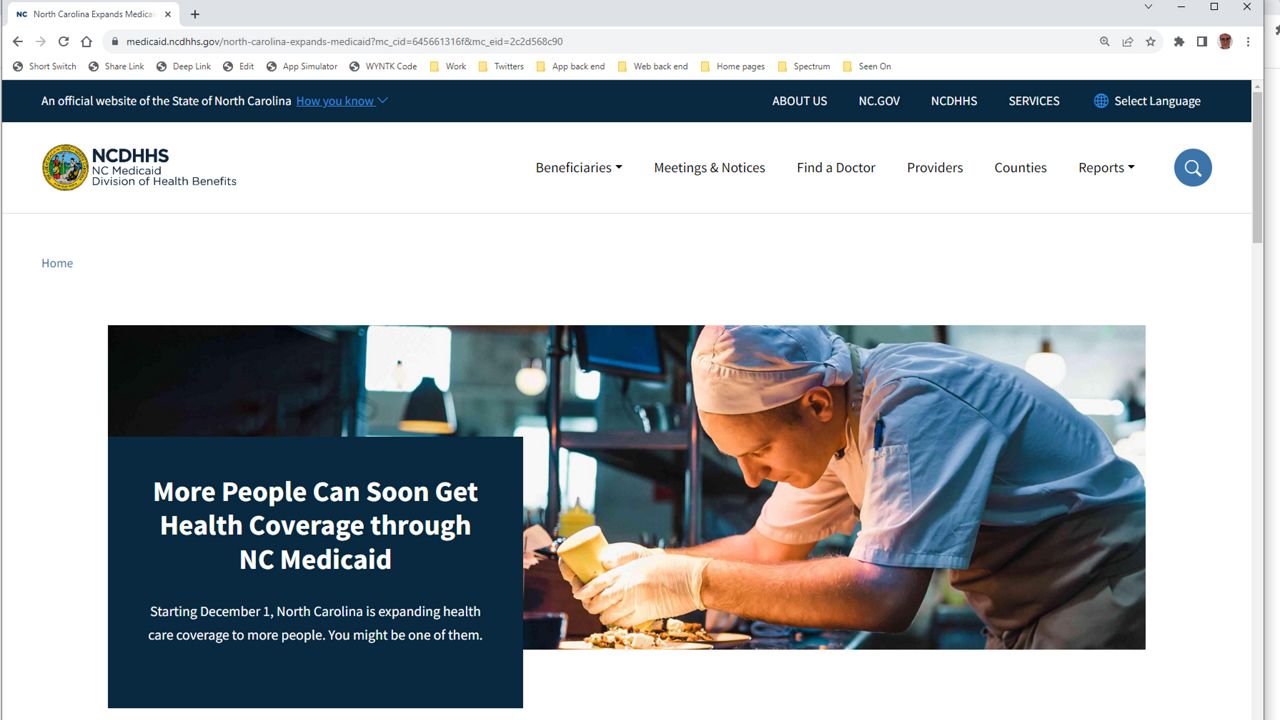The North Carolina Department of Health and Human Services has launched a new website with a toolkit of resources for people learn more about expanded Medicaid eligibility.
The expansion will cover adults who cannot afford private insurance, but made too much to qualify for traditional Medicaid, closing the coverage gap of North Carolinians. Medicaid covers costs of doctor visits, yearly checkups, emergency care and mental health at little to no cost to participants.
"I want everyone eligible for expansion to be enrolled and for it to be as easy as possible," said NCDHHS Secretary Kody Kinsley in a news release Thursday. "Our goal is to get the word out using this website and our partners so North Carolinians know what they need to do to get health insurance and get connected to care."
The toolkit is the first phase of the state’s outreach efforts and includes new English and Spanish-language resources to help educate North Carolinians on eligibility and how to apply, the NCDHHS said.
Medicaid expansion will allow 600,000 residents to apply for coverage beginning Dec. 1, including 300,000 who already receive Medicaid Family Planning Benefits.
The expansion of Medicaid coverage comes weeks after the state budget became law without Gov. Roy Cooper’s signature. The program’s expansion has been on the top of his priorities since he took office in early 2017 but had received pushback from state Republicans opposed to offering Medicaid through the 2010 federal health care law.
Cooper called this expansion the most significant health care investment in decades.
“Finally, lower wage workers, veterans, rural communities and many others will get the health insurance they’ve needed for so long to keep them healthier, treat sickness earlier and get them help in fighting the opioid crisis,” Cooper said.









_Cropped)